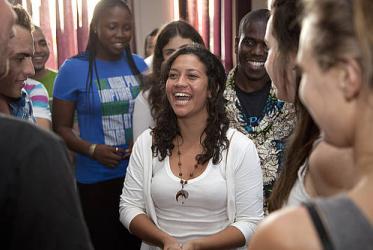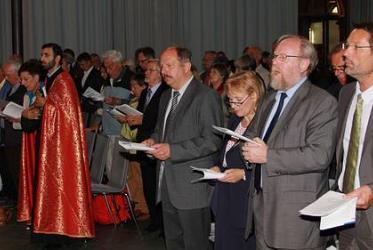Displaying 121 - 140 of 287
01 April 2014
WCC 10th Assembly: hopes and aspirations
10 October 2013
Time to pray for God’s creation
02 September 2013
Sign early and save lives!
04 June 2013
From shrines and battlefields, Christians and others to pray for peace
17 September 2012
WCC adopts statements on contemporary public issues
12 September 2012
WCC disowns doctrine used against Indigenous Peoples
27 February 2012
Youth promise active involvement for environmental justice
14 December 2011
Water crisis in Tuvalu
13 October 2011
Can you imagine a world without nuclear weapons?
03 October 2011
Time for Creation 2011: A call to pray, reflect and act
14 September 2011












